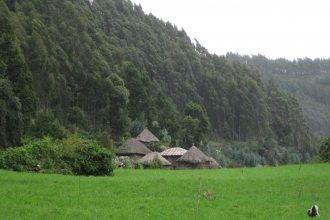Technological Innovation and Dispersion: Environmental Benefits and the Adoption of Improved Biomass Cookstoves in Tigrai, Northern Ethiopia
This paper empirically analyzes adoption and fuel savings efficiency of improved biomass cookstove technology using survey data from a cross-section of 200 farm households from the highlands of Tigrai, northern Ethiopia. Results indicate that these farm households are willing to adopt improved biomass cookstove innovations if this leads to economic savings. Moreover, results suggest significant positive environmental externalities. On a per household basis, we found that adopters collect about 70 kg less wood and about 20 kg less dung each month.




